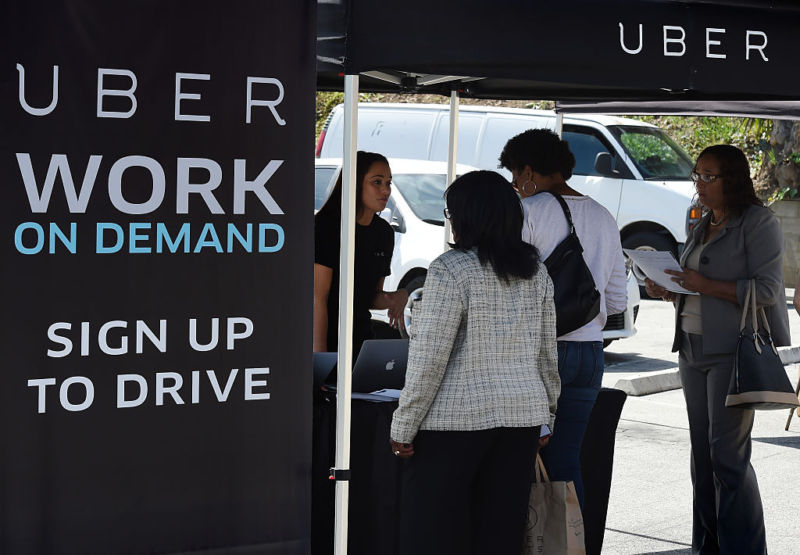
A federal appeals court handed Uber a significant win Tuesday in its battle to avoid having its drivers declared to be legal employees. Uber has asked the courts to throw out the lawsuit, because Uber's driver agreement requires this kind of dispute to be handled in private arbitration instead—an endorsement that the 9th Circuit Appeals Court has now accepted.
Uber says that its drivers are legally independent contractors, not employees. That's significant because federal law strictly regulates the relationship between employers and employees. Employees are guaranteed to earn federal minimum wage and are entitled to overtime pay if they work more than 40 hours per week. Uber employees, in contrast, are paid by the ride and might earn much less than minimum wage if they drive at a slow time of day.
California law also gives employees the right to be reimbursed for expenses they incur on the job, which would be significant for Uber drivers who otherwise are responsible for gas, maintenance, insurance, and other expenses of operating an Uber vehicle.
Hence, the question of whether Uber drivers are employees or independent contractors is a big and important one. It's also a question that isn't addressed at all in Tuesday's ruling, as the courts never get to the substance of the plaintiffs' arguments about employment law. Instead, a three-judge panel of the 9th Circuit court ruled that the drivers signed away their rights to sue in court when they signed up to be Uber drivers. Uber's agreement with drivers requires that this kind of dispute be handled by private arbitration rather than by a lawsuit in the public courts. The court cited a Supreme Court ruling handed down in May that held that federal labor law did not preempt arbitration agreements.
That doesn't end the case by any means, but it does significantly tilt the playing field in Uber's favor. Critics of private arbitration argue that arbitrators tend to be biased in favor of business and against the interests of consumers. But more importantly, the decision means that each driver's case must be fought on an individual, case-by-case basis. Class-action lawsuits in the federal courts allow plaintiffs to effectively pool their resources. Lawyers are often eager to take these cases with no money up front in hopes of getting a big payout if the lawsuit is successful.
But under arbitration, each driver's case will be considered individually. Most won't have the resources to afford top-tier legal representation, and drivers won't have the inherent leverage that comes from being able to bargain as a group.
Shannon Liss-Riordan, a lawyer representing plaintiffs in the case, vowed to fight on in an email to Ars Technica. Liss-Riordan says she is considering appealing the ruling to a larger panel of 9th Circuit judges. But if that doesn't work, she says she's determined to fight Uber through the arbitration process.
"We are urging all Uber drivers who want to pursue these misclassification claims to contact us immediately to sign up for individual arbitration," she told Ars by email. "If Uber wants to resolve these disputes one by one, we are ready to do that—one by one."
reader comments
138